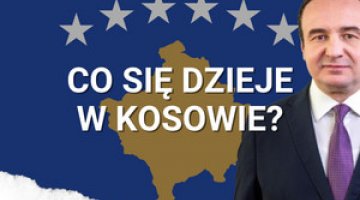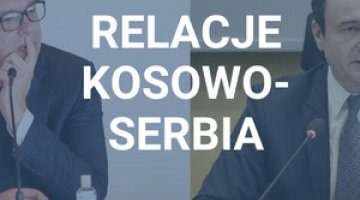Kosovo: sweeping victory for the opposition
The opposition parties won the snap parliamentary elections in Kosovo on 6 October. According to exit polls, Vetëvendosje (Self-Determination), the anti-establishment party led by Albin Kurti, garnered 25.51% of the votes, and the centrist Democratic League of Kosovo (LDK) 24.82%. The levels of support for the groupings originating from the Kosovo Liberation Army (UÇK), which have played a key role on the political scene since Kosovo declared its independence, have fallen significantly. The Democratic Party of Kosovo (PDK), from which President Hashim Thaçi originates, and has governed the country since 2008, received 21.2% of the votes. The coalition, made up of the Alliance for the Future of Kosovo (AAK) and the Social Democratic Party of Kosovo (PSD), and led by the outgoing prime minister Ramush Haradinaj, was backed by 11.6% of the voters. The coalition of NISMA, led by Fatmir Limaj, and the New Kosovo Alliance (AKR), led by the minister of foreign affairs Behgjet Pacolli, did not pass the election threshold. The Serb List, a grouping controlled by the government in Belgrade (6.22% of the votes) will take up the full quota of ten seats allocated to the Serb minority in the 120-seat Kosovar parliament. Voter turnout was higher than during the preceding elections, reaching 44%. However, this is a low result, because the list of voters also includes the large diaspora living abroad. No major irregularities were noticed during the elections.
Commentary
- The change of government as a result of a free election is good proof of progress in building a democratic state in Kosovo. Voters clearly expressed their lack of support for the governing groupings, dissatisfied with the high levels of corruption and nepotism and the lack of progress made in the process of building effective state institutions. They also criticised the government’s failure to achieve anything in foreign policy: no progress has been made in integration with the EU, and Kosovo is the only Western Balkan state whose citizens need visas to enter the Schengen zone. In turn, the dialogue on normalising relations with Serbia, according to the Kosovar public, has strengthened Belgrade’s influence in Kosovo and failed to change the policy of Serbia, which does not recognise Kosovo as a state and is restricting Prishtina’s room for manoeuvre on the international arena. However, these parties, considering their readiness to make concessions to Belgrade, have long been supported by the West, which sees a compromise between Kosovo and Serbia as a priority issue.
- The new government will most likely by formed by a coalition of the two biggest groupings, Vetëvendosje and LDK, and Albin Kurti will be the new prime minister. Vetëvendosje, which originates from an anti-establishment protest movement, has promised to launch an uncompromising struggle against corruption, speed up reforms and focus on economic issues. A similar agenda, although accompanied by calmer rhetoric, was presented by Kosovo’s oldest political party, LDK. Vjosa Osmani, a young politician educated in the West, headed the party list. Kurti has ruled out collaborating with the Serb List, arguing that this grouping is acting in the interest of Belgrade rather than the Serb minority. Non-parliamentary parties representing this minority are expected to be invited to participate in the government. Kurti has also announced that the 100% customs tariff on products from Serbia will be lifted, something Belgrade has demanded for a long time. This means that the new government is open to talks with Serbia, but it wants the dialogue to be continued on more equal terms than before.



